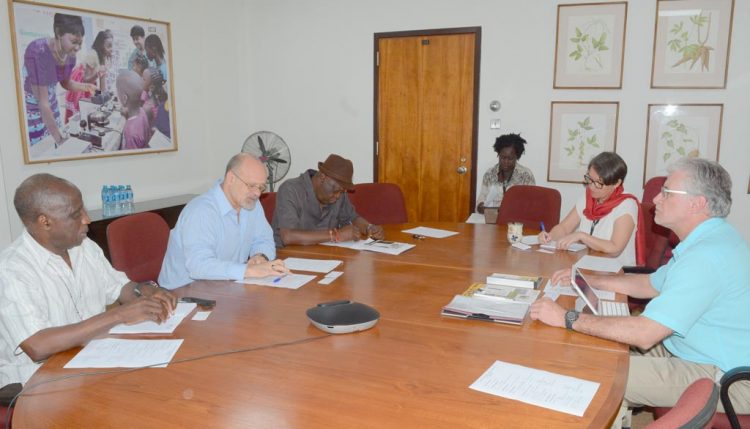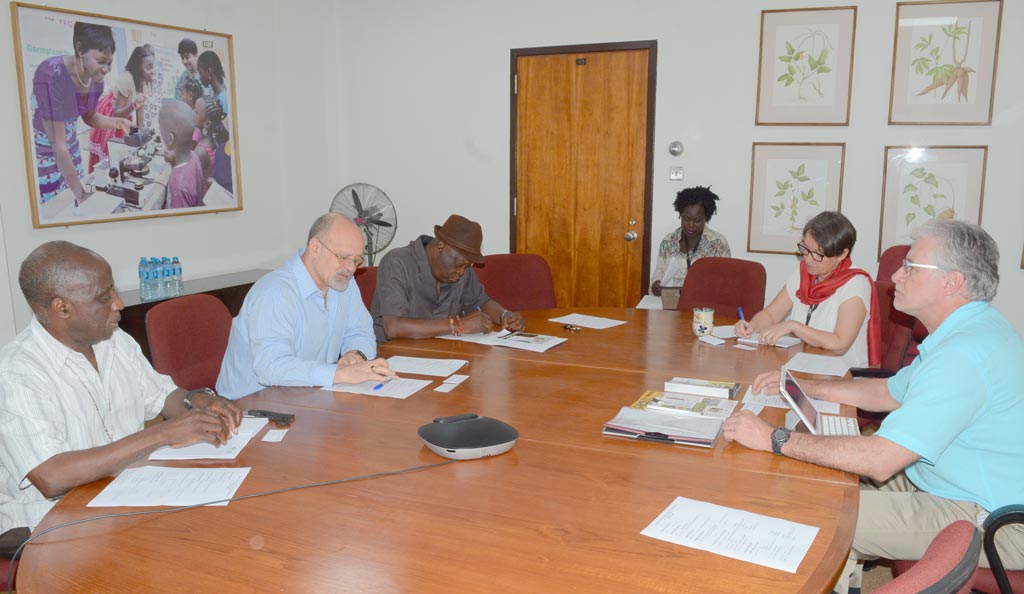
Purdue University collaborate with IITA on TAAT
With an estimated one-third of the world’s food going to waste, reducing food waste and loss is fundamental to meeting food demand and the agricultural mandate of Africa feeding Africa. It is on this premise that the representative of Purdue University, Professor Steve Yaninek, visited IITA on 26-28 February to explore possible areas of collaboration with IITA on the Technologies for African Agricultural Transformation (TAAT) program.
Kenton Dashiell, Deputy Director General, Partnerships for Delivery, with other members of the management team, welcomed Prof Yaninek and gave an introduction to IITA’s activities and programs.
Purdue University, with the African Development Bank (AfDB)’s intervention in the agricultural sector, is saddled with the responsibility of addressing postharvest loss reduction in Africa to improve livelihoods for both small- and large-scale farmers. In his presentation, Yaninek said, “The purpose of the Postharvest Losses Reduction and Agro-Processing (PHAP) program, an initiative of AfDB, is to enable countries to achieve supply-chain efficiencies through targeted investments in rural infrastructure, logistical support, postharvest, and agroprocessing technologies leading to reduced physical losses, improved food availability, and enhanced product quality.”
[su_quote]Yaninek explained the need to partner with IITA: “We are leading and collaborating in efforts to reduce postharvest losses, enhance agricultural value chains, and improve nutrition. To achieve this mandate, there is the need to leverage on IITA’s developed technologies and to see areas in which the two parties can develop innovations to reduce food loss and promote industrialization along the agriculture value chain.”[/su_quote]
Alfred Dixon, Director of Development and Delivery, and Project Leader, Cassava Weed Management Project, said the collaboration will focus on the postharvest aspect of the TAAT program, extrusion technology, using appropriate scale-type machinery for farming, participating in scaling up of innovations in agricultural conferences, manufacturing of a moisture meter to determine moisture level of grains, and probably, a testing kit for aflatoxin, and possible ways of controlling mealybug in yam.
A tour of the facility was conducted to further showcase IITA’s program in transforming agriculture in Africa.

